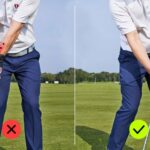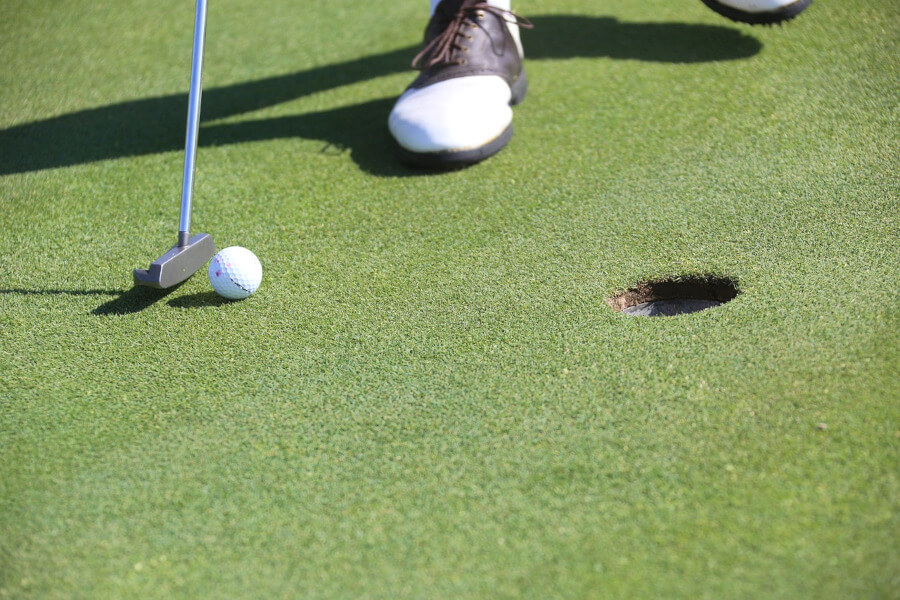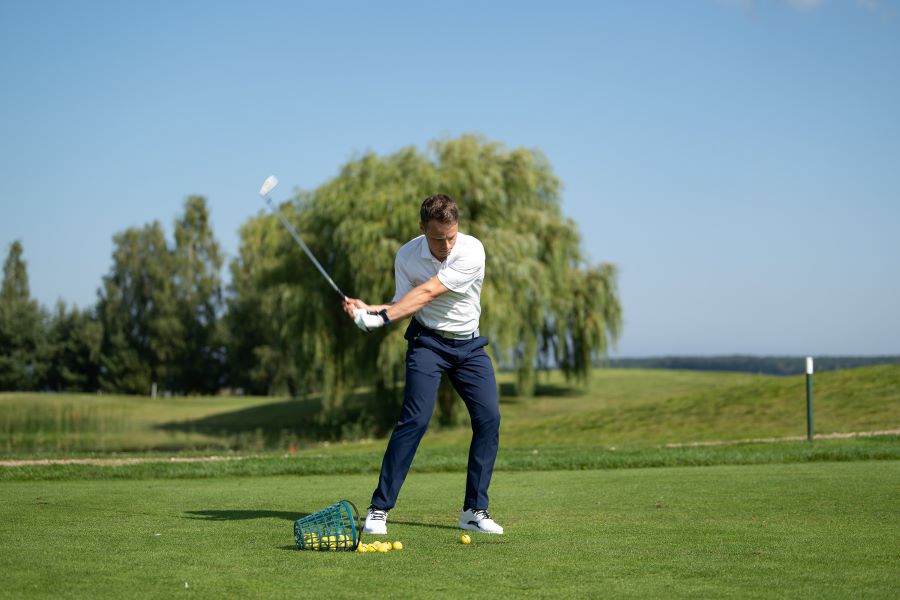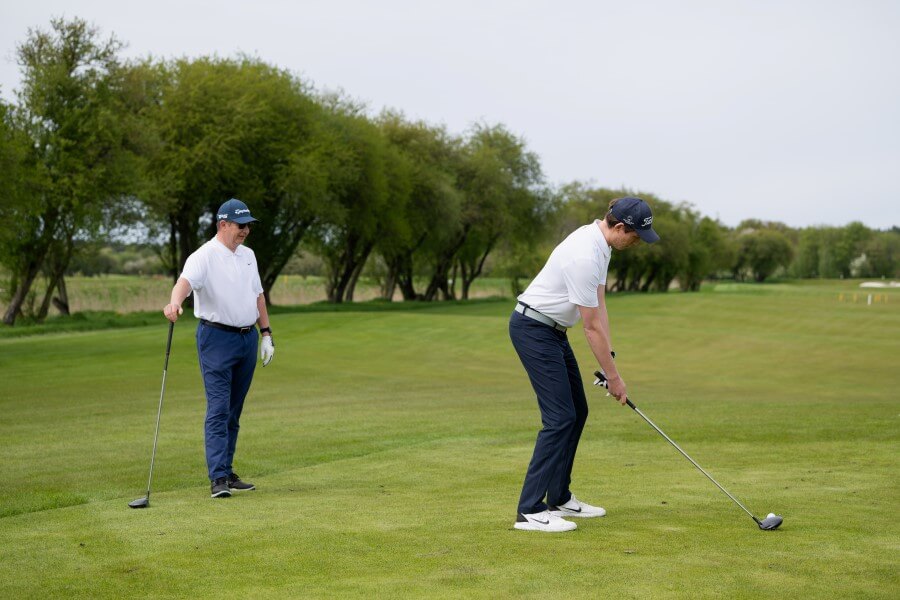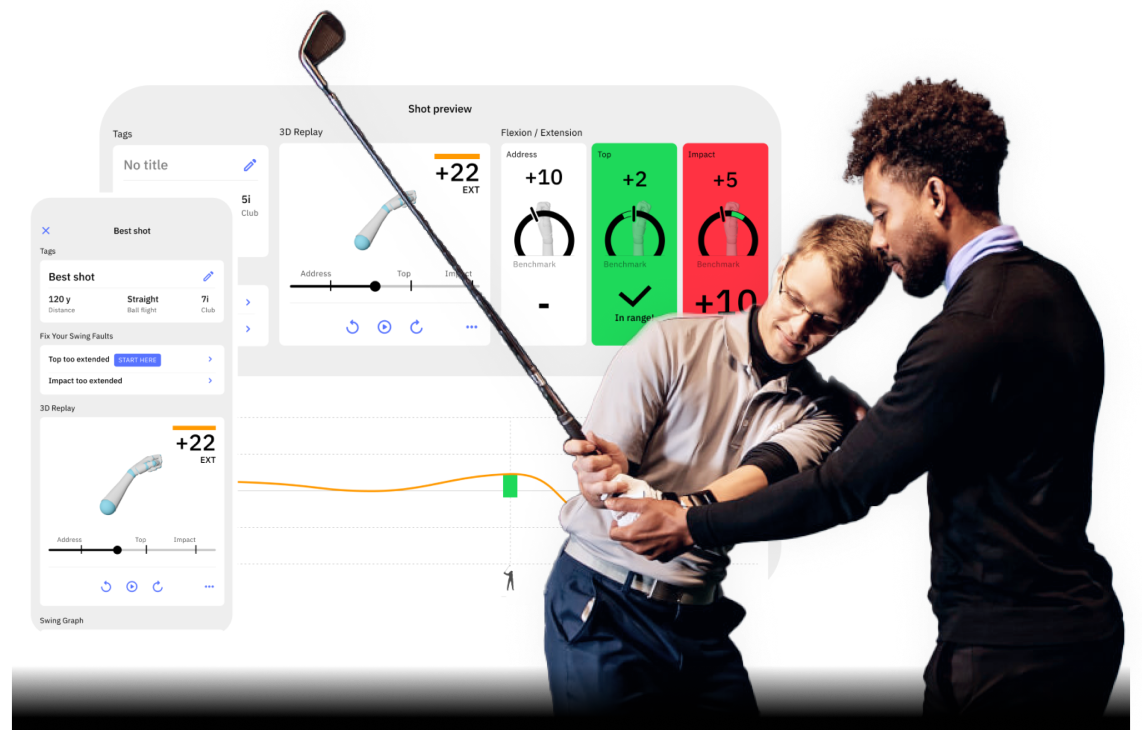Golf Tips for High Handicappers: How to Play Smarter and Score Lower
Being a high handicap golfer can be just as rewarding as it is frustrating. Don’t believe me?
Think about the last time you made a par and followed it up with an 8.
The experience on the golf course changes considerably from one round and even one hole to the next for high handicappers.
Here are 10 simple but effective tips for high handicappers that can change how you think about your golf game.
Whether you were a mid-handicapper and recently started to struggle or you are a beginner on your way down, these tips can be implemented into your practice routine and golf game today.
Key Tips to Focus on as a High Handicap Golfer
There are hundreds, if not thousands, of tips for high handicappers to become better at golf.
Here are a few of the key takeaways: I’ll encourage you not to jump into changing your swing all that much; in fact, don’t make any changes unless you fully understand their impact.
- Golf technology like HackMotion can help you understand complex issues in your golf swing and fix them by working on feel and consistency.
- The fundamentals; grip, setup, stance, balance, posture, and weight distribution should be the key focus points in your practice and pre-shot routine.
- Start to think like a better golfer with more pre-round planning, positive thoughts on the course, and learning about your golf game.
- Practice your aim and then learn to trust it on the golf course.
Top 10 Tips for High Handicap Golfers
Here are the tips that I have personally seen work for high handicap golfers looking to improve their game.
It’s so important to look at each of these tips not as swing changes or alterations but instead as strategies for improvement and more enjoyable golf.
Setup is Just as Important as the Swing
Many amateur golfers, especially beginners and high handicappers, overlook how important the setup is before each shot.
Your setup creates the foundation for everything that happens in your swing. If you’re out of position at address, it’s nearly impossible to fix things mid-swing.
Instead of just thinking about where your club is pointing, start focusing on the parts of your body that control consistency and balance.
Here’s what high handicappers should prioritize in their setup:
- Feet – Make sure they’re aligned parallel to your target and shoulder-width apart for stability.
- Grip – Use a neutral grip that allows you to square the face naturally at impact.
- Ball Position – Adjust based on club type (forward for driver, middle for irons, back for wedges).
- Posture – Bend from your hips, not your waist; keep your back straight and knees slightly flexed.
- Shoulders & Hips – Aim them square to the target line to promote a neutral swing path.
- Head Position – Keep your head behind the ball at setup, especially for longer clubs.
Use alignment sticks during practice to check your body lines. If you can trust your setup, you’ll be in a much better position to build a repeatable swing.
Learn to Control the Clubface
Wrist action in the golf swing is a difficult concept to understand.
Luckily, with the use of HackMotion, you can quickly learn what it takes to position your wrists correctly throughout the swing.
The wrists directly control the position of your clubface. If your lead wrist is too extended, your clubface will be open. If your lead wrist is too flexed, your clubface could be closed.
HackMotion gives you an exact wrist pattern range to follow to become a more consistent player. You also get golf drills to work on that you can practice in real time.
Try the HackMotion motorcycle drill to work on your wrist action and learn to control the face.
With the Motorcycle Drill, you will flex your wrists in the downswing to ensure you have more flexion at impact than you did at setup.
The number one reason golfers slice and hit inconsistent shots is an open clubface angle at impact; the motorcycle drill can fix that.
Motorcycle Drill – Master Wrist Flexion in the Downswing
Focus on continuously adding flexion until the club reaches parallel, then smoothly complete your swing.
HackMotion Motorcycle Drill – Step by Step:
- Set Up: Address the ball as usual.
- Downswing Flexion: As you begin your downswing, gradually add wrist flexion so that by the time the club is parallel to the ground (P6), you’ve achieved your desired wrist bend.
- Continue to Impact: Maintain that flexion into impact, then release naturally through the finish.
- Experiment with Speed: Start slowly, then increase speed while retaining proper angles.
- Practice while hitting golf balls but also work on this drill by completing the motion and not hitting shots.
- Find your “just right” amount of flexion—too little or too much can cause mishits.
Do Your Homework
There are a few things that you can do as a high handicapper when you are not out on the course that will help you play better golf on the course.
- Take a look at the golf course you are going to play and go through a mental round of golf, thinking about the golf shots that you plan to hit.
- Spend some time working on your yardages and how far you hit each club, pay close attention to carry distance so you are ready to make the proper club selection for each shot.
- Learn what your typical miss hit is and prepare for it when playing golf holes with bunkers and hazards.
Choose a Line and Stick to It
Aim and alignment are difficult for high handicappers to figure out.
In golf, your clubface will aim at your target, but your feet, shoulders, and hips are parallel to that target. It’s a difficult feeling at first, but aim is something you can practice.
When you practice at the driving range, make sure you are picking a target for each shot that you hit. The target practice helps you when you get out to the golf course. Be hard on yourself and try to only miss the target by a few yards here and there; 20 yards left or 20 yards right is a problem.
Also, trust your line on the putting green, from the tee, and on your approach. If you picked the pin, stick with it. If it turns out your line was wrong, you can adjust the next hole.
Use Technology to Lower Your Handicap
Technology can be a great way to lower your handicap.
Use technology like golf rangefinders, GPS devices, and HackMotion to learn more about your game and to make you a more accurate golfer on the course.
In addition, if you have access to a launch monitor, you can learn a bit about your distances and spin rates to help see if there are weaknesses and strengths in your game.
I would also encourage you to have equipment that is correct for your golf game. Many high handicappers are not using game improvement technology when they should be. If more forgiving golf clubs are out there, go ahead and use them to help you become a better player.
Slow Backswing Won’t Hurt You
Don’t rush the backswing.
Taking the club back a little slower is not going to cause you to slow down at impact. However, taking the golf club back a little slower does help ensure that your takeaway is correct and you don’t add too much extension right off the bat.
You can take a slow backswing and still accelerate through the golf ball to hit a great shot.
Stop Accepting the 2 Putt
Many high-handicap golfers are happy to get a two-putt. Although a 2-putt is certainly better than a 3 putt, make sure that you are not settling.
When you have a putt that is 20 feet or less, your first thought should be to 2-putt, not to simply get the ball close to the hole.
Learn to control distance on the putting green with proper wrist action and start making fewer three putts.
Don’t Get Stuck with a Favorite Club
Do you have a 4-hybrid or an 8-iron that you just love? It’s not rare to find a golf club that is just a perfect fit for your needs and helps you score.
However, if you get too stuck on this concept, it could hurt your game.
Challenge yourself to use all the golf clubs in your bag. If that happens to be 10 or 12 clubs, that is acceptable. However, if you are continually pulling out the same club over and over, don’t expect to make big changes in your scoring.
Exercise for Better Balance
Balance is one of the most overlooked fundamentals in golf, but it directly affects consistency, distance, and accuracy. If you can’t stay balanced throughout your swing, you’ll struggle to repeat good shots.
Here’s how to take action:
- Start walking more – Add 20–30 minutes of walking a few times per week to build leg strength and endurance.
- Train with purpose – Do bodyweight exercises like lunges, squats, and planks to strengthen your legs and core.
- Use a weighted club – Take slow, controlled swings and focus on maintaining balance throughout.
- Hold your finish – After every practice swing or shot, pause at the finish and hold it for 3 seconds while looking at your target.
- Test your stability – Practice swinging with your feet closer together or standing on a foam pad to challenge your balance.
Increase Your Distances
Finally, the further you hit the ball, the easier the game of golf gets.
Many professionals will try to tell you that distance is not as important as accuracy. Although I can agree with this sometimes, you have to be able to hit the ball a certain distance if you want to succeed on the course.
Would you rather have 185 yards into a pin or 150 yards into a pin?
One of the best ways to increase your distances in golf is to learn to hit the golf ball with a square clubface. HackMotion can be worn to help you understand how your clubface is turning and moving throughout the swing.
If you are not in a square or slightly flexed position at impact, it’s costing you distance.
Final Thoughts
If you want to lower your handicap, these best golf swing tips should make it a reality for you. Golf takes some time, but it mostly takes an understanding.
Use tools like HackMotion and spend some time working on the fundamentals to become the best golfer you can be.



